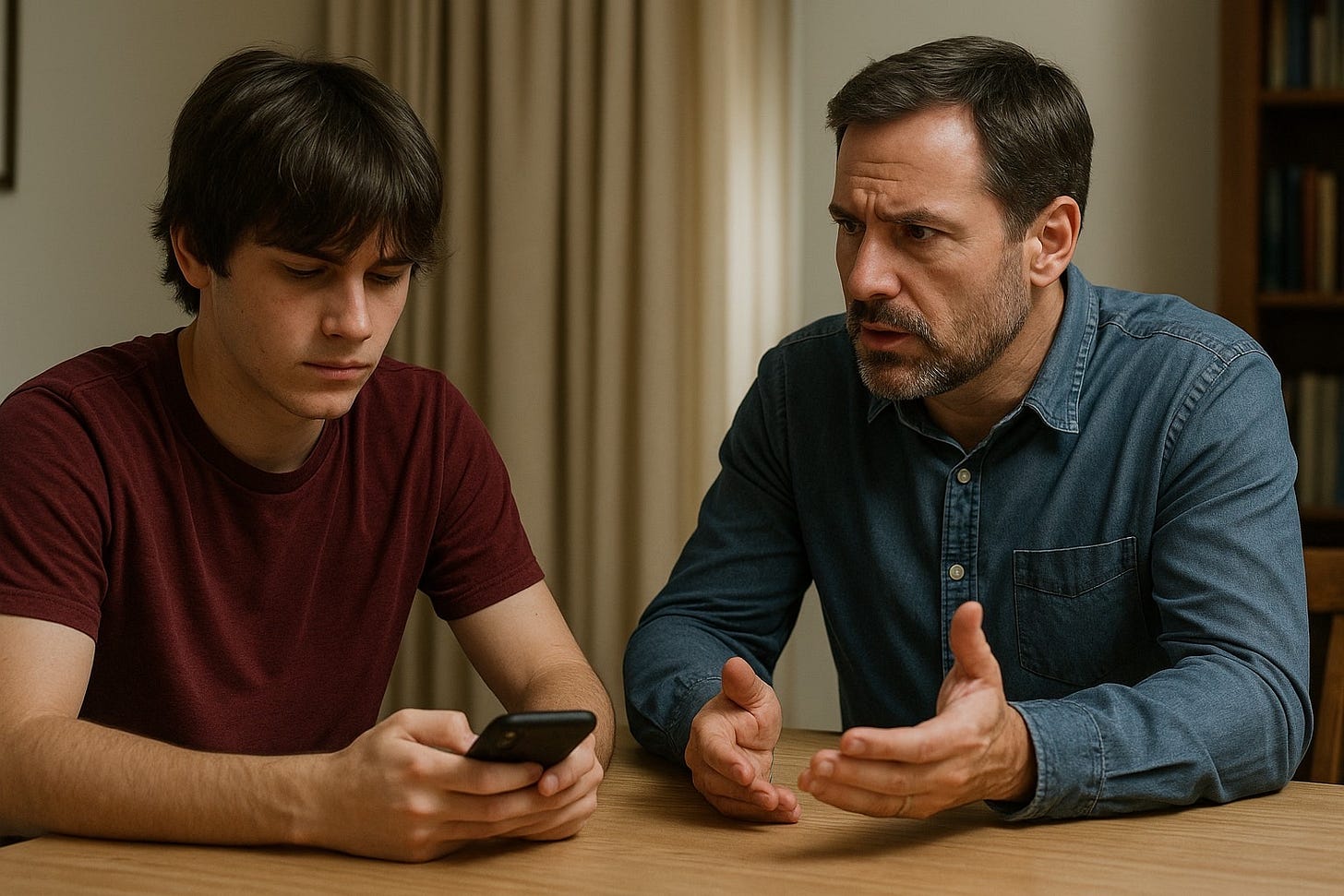At the end of 2023, our son came home for the holidays and we immediately noticed something was off. He was extremely withdrawn, anxious, and heavily addicted to gaming. We sat down for a serious conversation and suggested he take a break—a full detox from games and screens. To our surprise, he agreed. He even committed to joining me at the gym and following a daily routine with limited phone and gaming time.
But, on the very first day at the gym, he was glued to his phone. Back home, he became visibly agitated—like someone going through withdrawal. That’s when it hit us: this was much deeper than just gaming. Something was seriously wrong.
As we started to investigate, we discovered he had been using marijuana and secretly taking female hormones. When we confronted him, he first told my wife he was trans. The next day, he came to speak with me, and I told him we needed to talk honestly. I asked him to walk me through when and how he came to that conclusion because nothing in his upbringing or past behavior had ever indicated it.
Instead of opening up, he gave a scripted answer—something we had already seen echoed in online spaces: “Since I was 14.” It didn’t feel genuine. A parent knows. My son couldn’t even look me in the eyes when telling me this.
We later found out he was deeply involved in a niche, online gaming community that was almost entirely made up of LGBTQ and transgender-identifying individuals. He was also addicted to porn and anime, which seemed to fuel a lot of his fantasies and emotional confusion.
I tried to have an open and honest conversation with him about it, but he refused. He said, maybe he shouldn’t live under our roof anymore because he didn’t want to have to explain himself. In that moment, I realized he knew—deep down—that his story wouldn’t hold up to real, honest discussion. He chose to leave.
Over the following year, communication was painful and strained. Anytime we tried to talk, he would accuse us of being neglectful or intolerant—things that simply didn’t reflect the reality of our relationship. We’ve always been present, supportive parents, and his two brothers were just as confused as we were by his sudden change in behavior and his accusations.
Eventually, he agreed to meet with a mental health professional we trusted—someone with extensive experience in gender issues. After a number of sessions, the psychiatrist told us they did not believe our son was truly transgender. Instead, they saw signs pointing to possible underlying emotional or psychological struggles and recommended further evaluation.
One moment that stayed with me: during a tense conversation, I asked him, “If you hadn’t been part of that gaming club or spent so much time online, do you think you’d still be close to the same group of friends?” He paused. Then he said, “Probably not.” That answer confirmed a lot for us about how his environment had shaped his thinking and identity.
This is just a glimpse of the journey we’ve been on, and we’re still walking it. We’re sharing this not to blame, judge, or point fingers—but to let other parents know they’re not alone.
We live in confusing times and our children are being influenced by forces that many of us didn’t experience when we were growing up. Staying grounded in love, truth, and clarity has never been more important.
If you’re going through something similar, don’t give up. Keep praying, keep asking questions, and don’t be afraid to seek help. Truth has a way of shining through—sometimes slowly, but always powerfully.


DLM
DLM’s Substack
2m
I help lead a group of parents of ROGD sons who are over 18. It has come up in conversation that none of them can explain why they think they are a woman. They avoid the conversations, get angry, or give scripted answers. Many like my son just stop communicating with us.
Why can doctors give them drugs and surgeries to "treat" a condition they cannot even describe?
Right there in the trenches with you, praying and trying to reason through this.